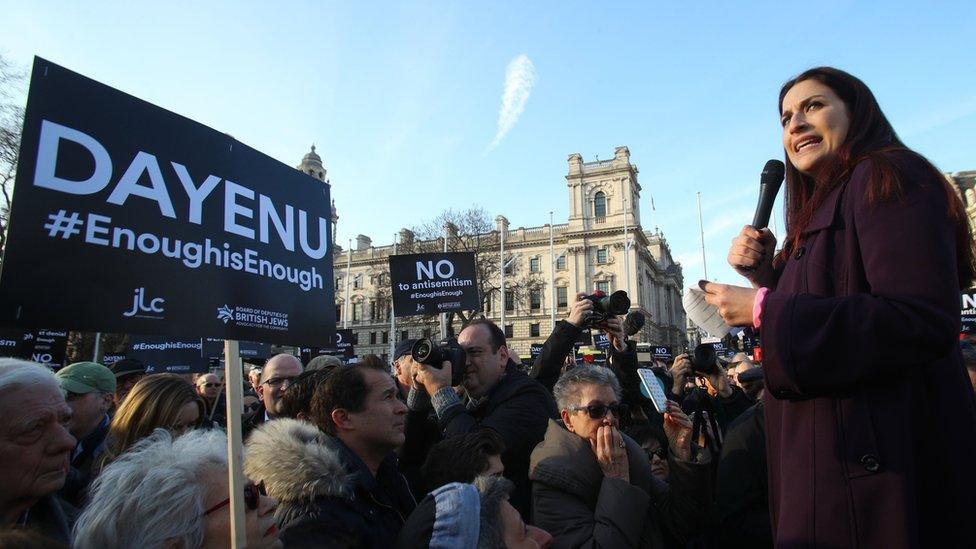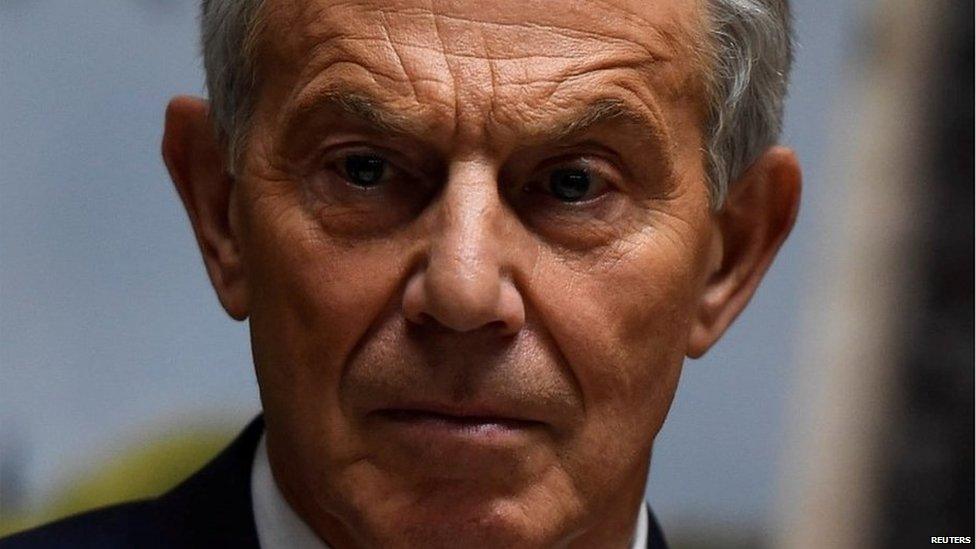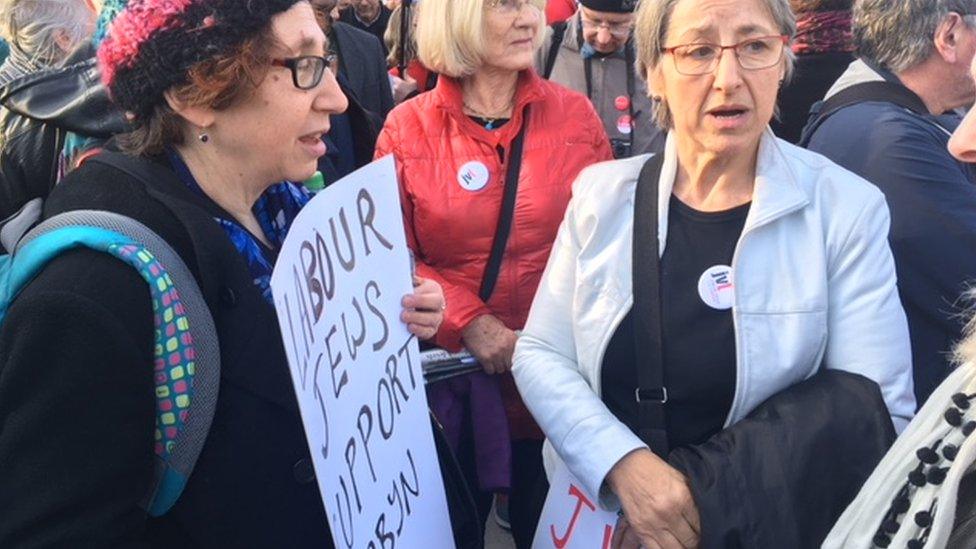Jeremy Corbyn told to act on 'stain' of anti-Semitism in party
- Published

Luciana Berger MP joined a demonstration in London against anti-Semitism in Labour
Labour MPs are pressing Jeremy Corbyn for more action to "root out" anti-Semitism in the party after he issued a new apology to Jewish groups.
Some of Mr Corbyn's MPs joined a protest against his stance on anti-Jewish prejudice outside Parliament.
Frontbencher Rebecca Long-Bailey said it was "devastating" to "realise that the Jewish community had lost faith in our approach to anti-Semitism".
But she said the party took a "zero-tolerance" approach to the issue.
"I think there is a lot more that needs to be done and I think Jeremy addressed that clearly yesterday. He has always been a militant opponent of anti-Semitism," she told BBC Radio 4's Today programme.
In a joint statement, Jonathan Goldstein, chairman of the Jewish Leadership Council and Jonathan Arkush, president of the Board of Deputies of British Jews, said they had been "overwhelmed" by the response to the Parliament Square protest, which followed an open letter to Labour MPs saying "enough is enough".
"Never has our community made a more powerful statement that we will not tolerate anti-Semitism in the Labour Party," the leaders said of Monday's protest.
"We note Jeremy Corbyn's apology but we are almost three years into his leadership and words are no longer enough - now we need action.
"The Labour Party must finally demonstrate that it has the genuine will and determination to act effectively against the hate in its membership. We will not be silent and we will continue to hold it to account."
On Monday, Mr Corbyn acknowledged anti-Jewish prejudice had surfaced within Labour and it had been wrong for some people to dismiss it "as a matter of a few bad apples" and called for a meeting with Jewish community leaders.
He pledged to deal with allegations of abuse more quickly and improve "political education" among activists.

What is anti-Semitism?
Anti-Semitism is "hostility and prejudice directed against Jewish people" (OED)
Campaigners for Palestinian rights - a popular left-wing cause - say they are against Zionism rather than anti-Semitic
Zionism refers to the movement to create a Jewish state in the Middle East, roughly corresponding to the historical land of Israel, and thus support for the modern state of Israel. Anti-Zionism opposes that.
But some say "Zionist" can be used as a coded attack on Jews, while others say the Israeli government and its supporters are deliberately confusing anti-Zionism with anti-Semitism to avoid criticism

Former Prime Minister Tony Blair told Newsnight the time for words was over and Mr Corbyn had to show he was "prepared to act" to "root it out, completely, 100%".
Mr Blair, who became a Middle East envoy after leaving power in 2007, has long been accused by the left of having too cosy a relationship with successive Israel governments.
Asked if he was conflating legitimate criticism of Israeli policy with anti-Semitism, Mr Blair said activists could oppose the actions of individual governments but "that's different from being anti the state of Israel and its existence - and when people are in that position it very quickly trends across into anti-Semitism".

Mr Corbyn made a similar point in his letter to Jewish groups, saying: "Jewish people must not be held responsible or accountable for the actions of the Israeli government."
A succession of Labour MPs made their feelings known at Monday's demonstration in Parliament Square and at a subsequent meeting of the Parliamentary Labour Party.
Luciana Berger, chairwoman of Jewish Labour, said anti-Semitism was a "stain on the conscience of the party".

At the protests

Jewish Voice for Labour staged a counter demonstration in support of Jeremy Corbyn
By Brian Wheeler, BBC political reporter, in Parliament Square
A few of those present in Parliament Square were clearly not fans of the Labour Party or Jeremy Corbyn, although most I spoke to were Labour supporters who felt real anger about what they saw as Mr Corbyn's "soft" stance on anti-Semitism.
Tim, from Bermondsey, told me: "I have been a member of the Labour Party since 1981 but I never thought I would be in the position of standing outside Parliament complaining about the treatment of our Jewish comrades."
The counter-demonstration organised by Jewish Voice for Labour was smaller, but everyone I spoke to was a Labour Party member and felt Mr Corbyn was being persecuted unfairly.
One man was handing out "Labour against the witch hunt" leaflets.
Leah Levine, the co-chairwoman of Jewish Voice for Labour, did not deny there was some anti-Semitism in Labour just as, she said, there was in society as a whole - but she argued it was being blown out of proportion by opponents of Mr Corbyn - and that anti-Semitism was a far bigger problem on the right.
"We are not a racist movement," she told me.